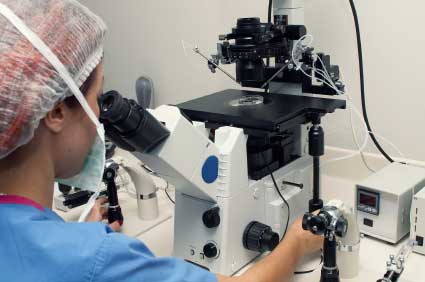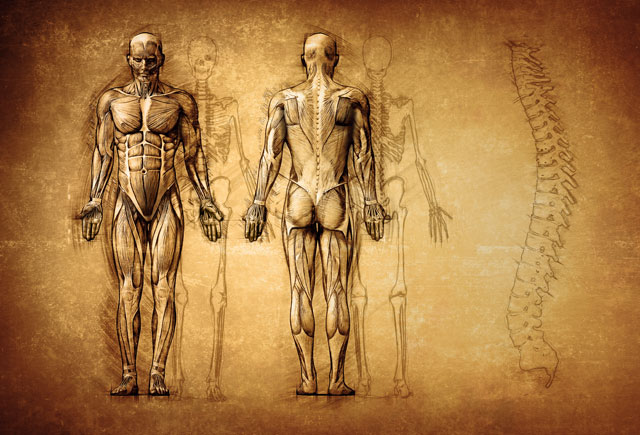Besides having a solid working knowledge of office organization and procedures, the medical secretary must know medical terminology and be able to use it accurately. In small offices, the medical secretary may perform several functions such as billing and insurance manager. In larger offices, the medical secretary may also perform supervisory duties, working closely with clerks and technicians assigned to specific areas within the office.
Medical secretaries are highly skilled, professional people who are indispensable in today's growing healthcare industry. In this article, the qualifications of the medical secretary position will be discussed.
Finding a place in the healthcare industry is an exciting undertaking. For those who have the basic secretarial skills, good people skills, and are able to multitask in a professional environment, the position of medical secretary may be the right career choice.
QUALIFICATIONS Medical secretaries must first have the general knowledge of basic secretarial work with strong typing speed and accuracy. Added to that is the need to be familiar with medical terms and procedures. The medical secretary will not only know about the office in which she or he is employed but will also understand the nomenclature of various medical departments, practices, and procedures. The medical secretary must understand the workings of hospitals, laboratories, and medical specialists. While much of this information may be learned on the job, it is preferable that the new medical secretary enter the field with basic medical knowledge to begin with.
Paramount to the position, besides secretarial skills and knowledge of medical terminology, is the ability to relate well with people and handle difficult situations. The added pressure of the need for accuracy in a highly charged working environment requires that the medical secretary be a person of both maturity and friendliness. In smaller offices, the medical secretary may also act as receptionist for patients who visit the office. Although in larger practices the medical secretary may not perform all the duties, she or he must be familiar with every aspect of the office procedure. In short, the medical secretary must be able to learn and retain knowledge relevant to a healthcare office.
Specialized medical secretaries may work only within one field of the medical profession after additional training. These secretaries work for physicians who are specialized in one field or in specialized clinics or medical research labs. Medical secretaries are also eligible for certification upon fulfilling length of experience requirements and passing a certification exam.
EDUCATION
In some healthcare offices medical secretaries are required to have at least a BA degree with some specialized training in the medical field being an added plus. Computer training and knowledge is essential. In some smaller offices, the medical secretary may also double as the IT administrator for the system. Familiarity with, or the ability to learn quickly, various types of medical-related software, is also essential.
Those with an associate degree and excellent secretarial skills may also be considered for the position of medical secretary. Naturally, excellent computer skills are required along with a high degree of people relations ability.
A high school diploma may be acceptable to some medical offices for an entry level medical secretary position. A certificate of training from a business school will also be considered a plus for such applicants.
WORK ENVIRONMENT
The medical secretary may work for a single physician or for a group practice. She or he may also find a position in a hospital, a medical laboratory, a clinic, state or local health agencies, or medical research facilities. The work environment in such places is usually clean and bright with comfortable and attractive office furnishings. The position requires sitting for long periods of time, usually in front of a computer screen, during a forty-hour work week. In some cases, the medical secretary position may only be a part-time situation. The human factor of the work environment encompasses highly professional co-workers who are dedicated to the healthcare of the public.
ADVANCEMENT
Either through experience or continued education, medical secretaries may look forward to advancement in both salary and position. A promotion might be to medical office manager, administrative assistant, or the like. Proven management skills as well as a high degree of computer proficiency and financial management skills are requisites for advanced positions.
Salary advancement is to be expected for medical secretaries as they continue working in the field. Entry level salaries nationwide average $25,000 to $30,000 per year. Cost of living and merit increases can be expected.
DUTIES AND RESPONSIBILITIES
Briefly, the duties and responsibilities of the medical secretary beyond basic secretarial skills will depend upon the office. Fundamentally, the medical secretary is charged with the responsibility of keeping the office running efficiently. In some offices, the medical secretary maintains the appointment schedule, keeps the files up-to-date, as well as transcribing dictation, reports, and medical histories. Speed and accuracy are the bench-marks of the medical secretary position.
In smaller offices, accounting ability and billing procedures may be required of the medical secretary. Even in larger offices where there are specialized employees to handle those tasks, the secretary is required to be knowledgeable about those aspects of the office. Consistency and reliability are essential for the medical secretary who must always be alert to the many details that must be attended to in the medical office. Human error can be costly or even life threatening if mistakes are made in the medical records of patients.
SUMMARY
In summary, the position of medical secretary can be a rewarding and lucrative career for the person who meets the requirements for the job. As in all occupations, the more education the person has, the better are the chances for success and advancement. Accuracy and efficiency are cornerstones for the successful medical secretary and the ability to relate to people and deal with them in a pleasant, professional manner is also basic to the position. The job of the medical secretary goes well beyond basic secretarial skills in the highly specialized area of healthcare.






























